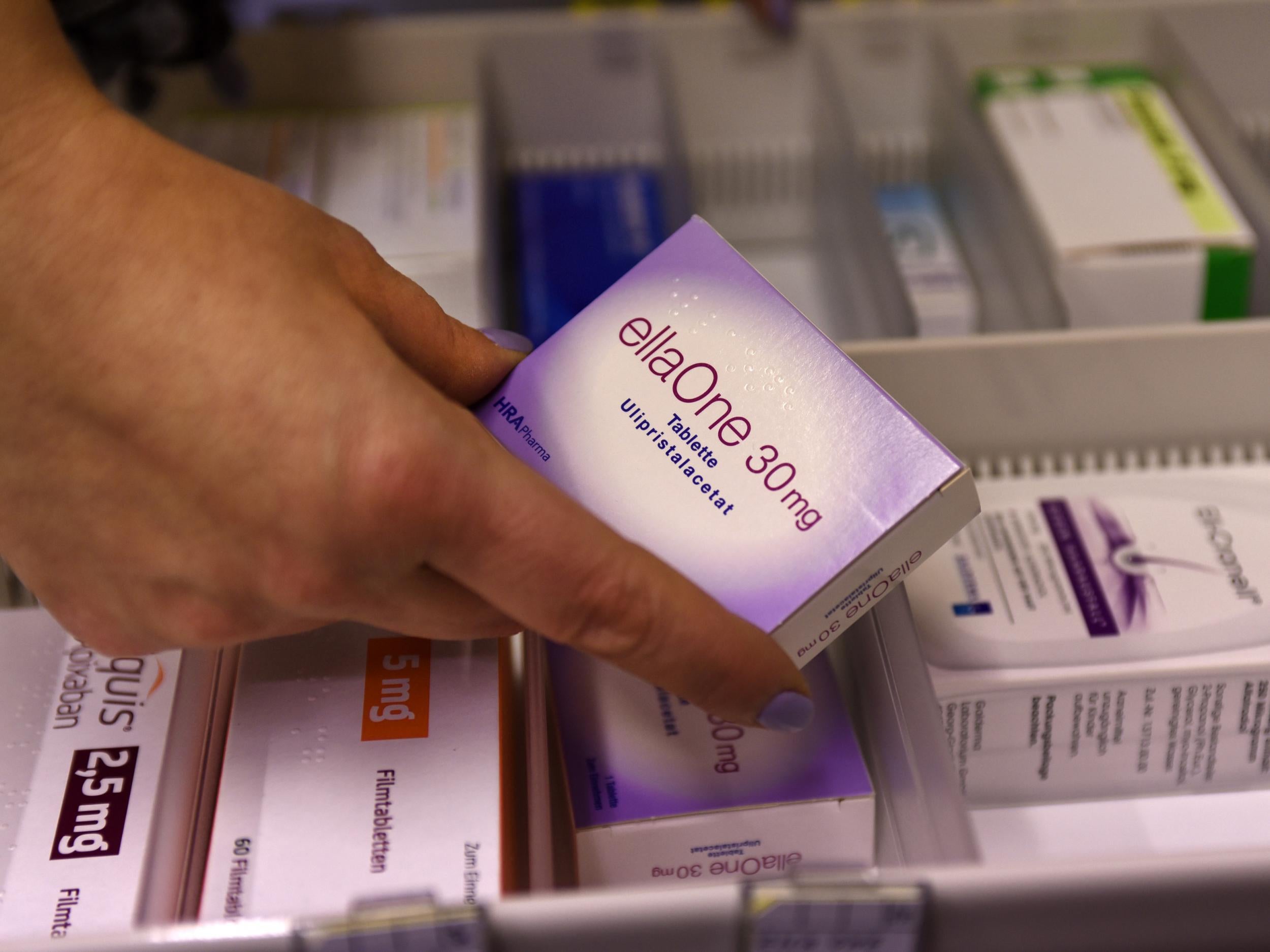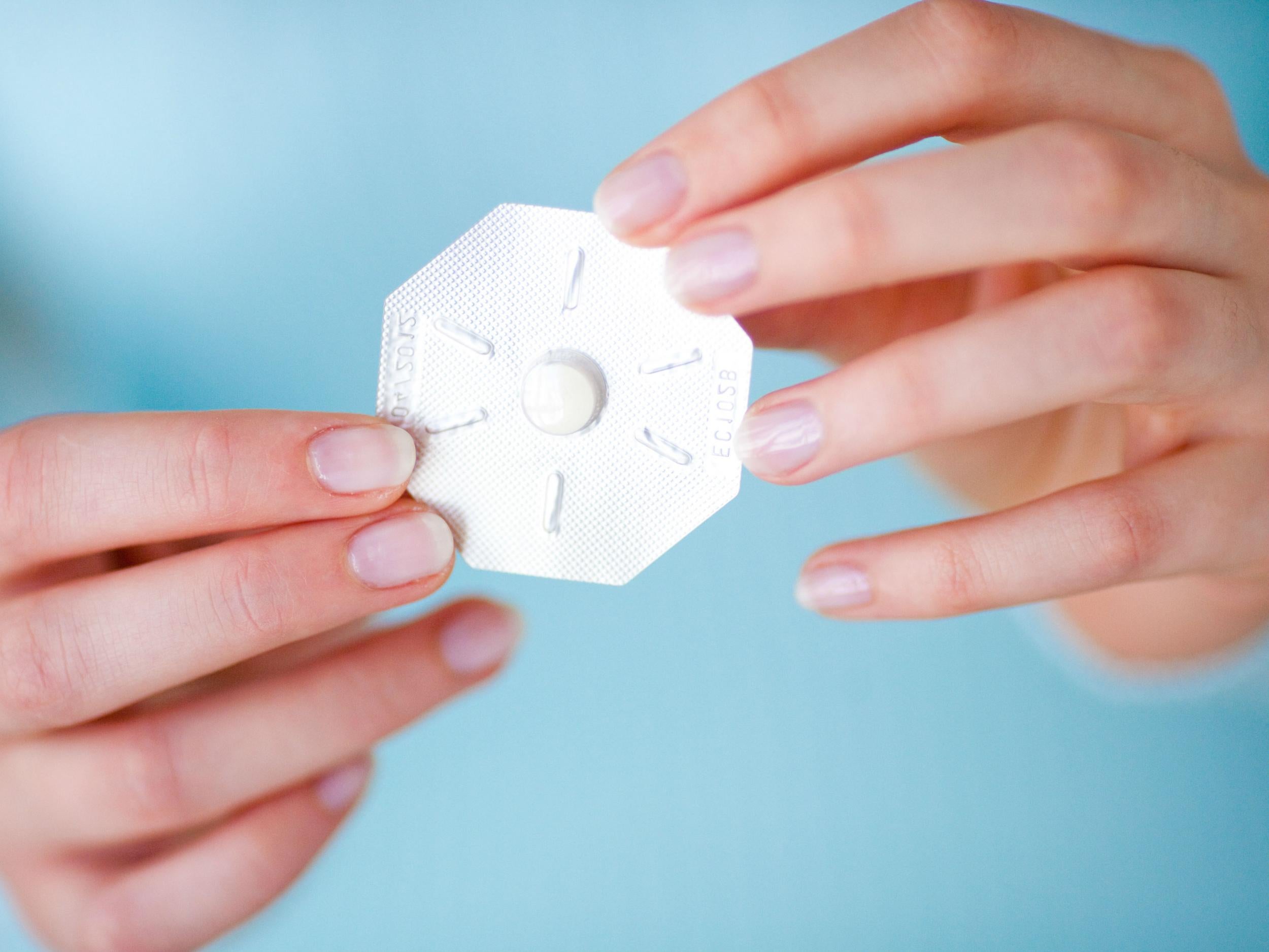End 'patronising and insulting' consultations for morning after pill, campaigners say
The price of emergency contraception in the UK is deliberately high to prevent women from taking it too often, according to the manufacturer of morning after pill Levonelle

Your support helps us to tell the story
From reproductive rights to climate change to Big Tech, The Independent is on the ground when the story is developing. Whether it's investigating the financials of Elon Musk's pro-Trump PAC or producing our latest documentary, 'The A Word', which shines a light on the American women fighting for reproductive rights, we know how important it is to parse out the facts from the messaging.
At such a critical moment in US history, we need reporters on the ground. Your donation allows us to keep sending journalists to speak to both sides of the story.
The Independent is trusted by Americans across the entire political spectrum. And unlike many other quality news outlets, we choose not to lock Americans out of our reporting and analysis with paywalls. We believe quality journalism should be available to everyone, paid for by those who can afford it.
Your support makes all the difference.The morning after pill should be available to buy straight off the shelf without the need for an “unnecessary and embarrassing” consultation, a leading reproductive rights charity has said.
The current requirement for women to speak with their pharmacist before they can buy emergency contraception is “patronising and insulting,” according to the British Pregnancy Advisory Service (Bpas).
Bpas also demanded a drop in the price of the morning after pill, which usually costs around £25 to £30 at chemists, to bring the UK in line with other European countries where it is cheaper.
Katherine O’Brien, a Bpas spokesperson, told The Independent restrictions on the sale of emergency contraception were outdated.
“It’s based on a really weird view of women, a really outdated and patronising view that we can’t be trusted with this medication or we’ll be reckless, it’ll be one-night stands left right and centre,” she said.
“I don’t think that is how women view things.”
The high price of the morning after pill in the UK is set deliberately to prevent women from taking it too often, according to a 2003 report in the Pharmaceutical Journal.
“Levonelle costs £24 from pharmacies. The price has been set, in part, to ensure that [emergency hormonal contraception] is not used as a regular method of contraception,” a spokeswoman for morning after pill Levonelle’s manufacturer told the journal at the time.
Emergency contraceptive pills Levonelle and ellaOne are available free of charge from most GP surgeries and specialist NHS clinics, as well as pharmacies in some areas where they are provided by the local health authority.
But the pills are more effective the earlier they are taken, and many women have no choice but to buy them over the counter as appointments were difficult to obtain amid cuts to sexual health services, said Bpas.

Advice on the NHS website states that Levonelle, which can be taken within three days of unprotected sex to prevent pregnancy, is “likely to cost around £25” and can only be bought by those over 16.
And ellaOne, which can be taken within five days of unprotected sex, costs around £35, according to the site.
Ms O’Brien said the pricing, which is more than in most other European countries including France, where the morning after pill costs around €7, and Portugal, where it costs around €12.50, seemed “very odd”.
“It is a method of contraception, it prevents a pregnancy, and if that’s what women need to use to do that then surely we should be supporting them to do so,” she said.
“It seems a very odd way of pricing an important method of contraception that’s incredibly safe – a lot safer than some of the other medications that you can just pick up and buy from the shelves.”
Bpas, which is the UK’s largest provider of abortion services, said one reason the price of emergency contraception is so high is due to the compulsory consultation requirement.
It called for the medicine to be reclassified as a General Sales List drug, so it could be sold off the shelf as in other countries, and urged the Department of Health to launch a review into its accessibility.
The charity said it regularly worked with women experiencing unplanned pregnancy who had been deterred from taking emergency contraception because of obstacles including the price.
“For some women, having an opportunity to talk about their contraceptive needs can be very useful. But for some women, it’s unnecessary, and for some women it can be embarrassing, and there’s a feeling of judgement,” said O’Brien.
“In some larger pharmacies, you can be given the option of going to a separate room or area, but sometimes these very personal questions are delivered to women in a queue on their lunchbreak in a really busy pharmacy. That’s quite embarrassing.”
The Department of Health said it had no plans to change the system regarding access to emergency contraception and that the government did not control the price at which medicines are sold over the counter.
“Emergency contraception is available free of charge from general practice, sexual health clinics and from some community pharmacies,” said a Department of Health spokesperson.
“We are clear it is only for use in emergencies and we have no plans to change the system.”
Among women aged between 16 and 45, 29 per cent had had unprotected sex at least once in the last year, according to a 2014 study into use and attitudes towards emergency contraception, published in the European Journal of Contraception and Reproductive Health Care.
Of those, around two thirds said they had not taken emergency contraception following unprotected sex.
The most common reasons given for this were that they did not think they were at risk of pregnancy, misconceptions about emergency contraception, or not knowing where to find it.
In the UK, 11 per cent of women said they had not used emergency contraception because they were “embarrassed to ask for it,” compared to six per cent in all countries and just two per cent in Spain.
Sandra Gidley, the chair of the Royal Society of Pharmacists, said she supported the continuation of consultations before women can buy the morning after pill at a pharmacy.
“Having a discussion with the pharmacist is central to providing emergency contraception,” she said.
“A consultation firstly helps define if it will be effective by being taken within the right time frame. It further supports a woman to consider her future use of contraception, her risk of sexually transmitted infections and help with any other sexual health questions she may have.”
Ms Gidley said the consultation was free, and unconnected to the cost of the product.
“We fully support NHS schemes that allow women to access emergency contraception free of charge through community pharmacy and would like to see wider roll out of these services across the country.”
And Norman Wells of the Family Education Trust expressed concern that the morning after pill could be “misused or overused” if no medical history questions were asked before it was bought.
Genevieve Edwards, director of policy for Marie Stopes UK, said "anything which makes it easier for women to safely get hold of emergency contraception would be welcome".
"We all know how hard it can be to get a doctor's appointment, leaving many women with no other option than an embarrassing conversation next to someone buying athlete's foot cream and stumping up £20 to £40 for the privilege, or in the worst cases being discouraged from seeking the care they need."
According to the NHS, there are no serious side effects of using emergency contraception such as Levonelle and ellaOne.
An intrauterine device (IUD), or coil, can also prevent unwanted pregnancy if it is inserted up to five days after unprotected sex.
Join our commenting forum
Join thought-provoking conversations, follow other Independent readers and see their replies
Comments